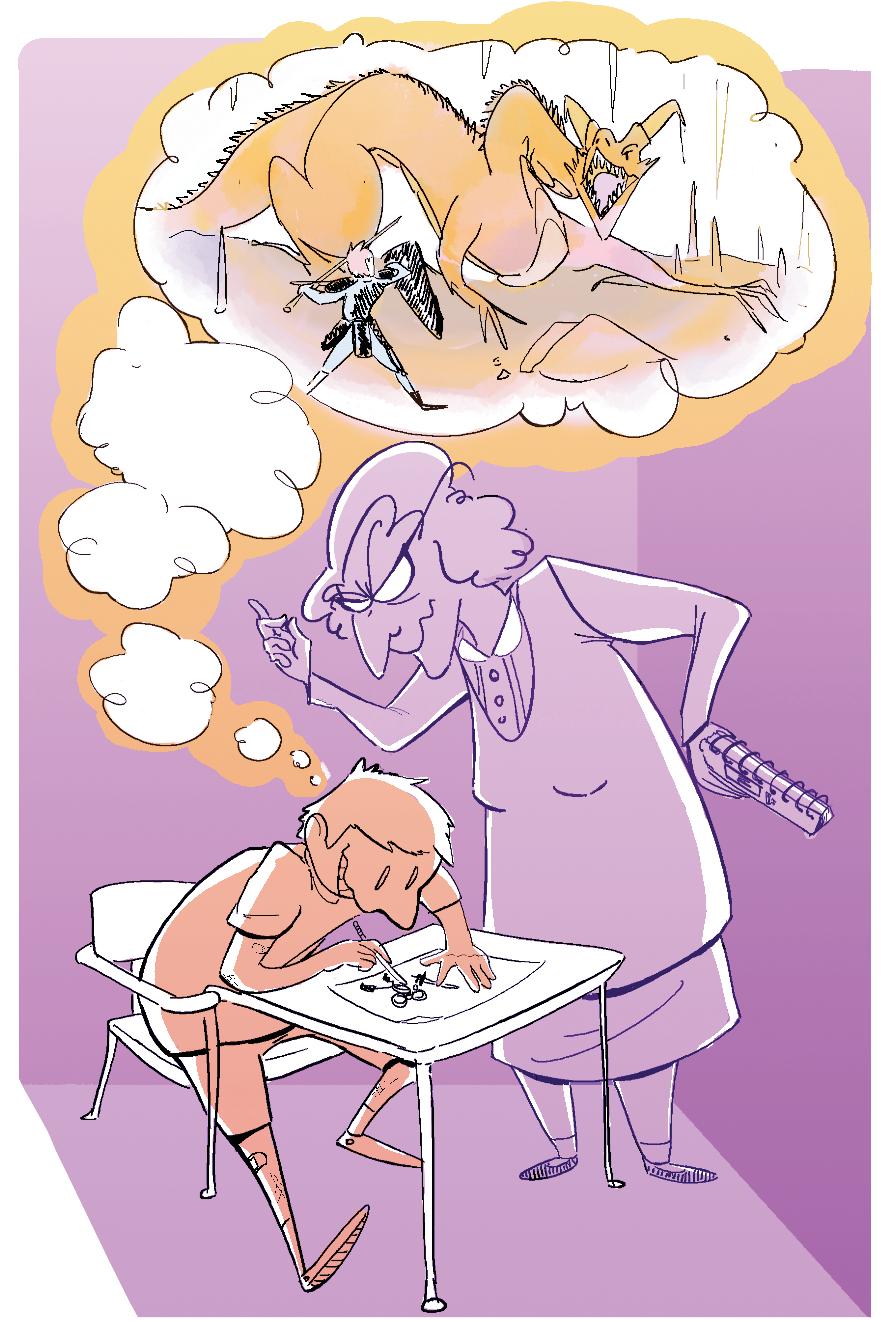
“It’s not really a wonder that many children are afflicted with ADHD, what is a wonder is that not every child is not diagnosed with ADHD.” -Dr. Jordan Peterson
Every kid has trouble with curbing the wiggles, paying attention, or controlling impulses. For some, however, the problems are so pervasive and persistent that they substantially limit success in different aspects of their lives. Likely you know someone affected by Attention Deficit Hyperactivity Disorder (ADHD) — because it’s one of the most common chronic childhood disorders.
One fact we found surprising: ADHD is less prevalent in Utah than in other states. The University of Utah has research that links the thin air of higher elevations to a decrease in the prevalence of ADHD, which decreases substantially as altitude increases.
Though studies like these are good news to most Utah parents, those who deal with ADHD can experience huge parenting challenges as they navigate treatment to help their children thrive. A critical decision is whether or not medication is the answer. Even with input of doctors, therapists and educators, using drugs to treat ADHD is a decision no parent wants to make, and controversy surrounds them as they consider the options.
CONFIRMING A DIAGNOSIS
According to Children and Adults with Attention Deficit Disorder, or CHADD, no single cause explains ADHD. Whether ADHD is caused by bad parenting, kids watching too much TV, over-consumption of sugar or reacting to trauma, the studies cannot point to any one cause. However, getting to the heart of the real issue can make or break a treatment plan.
Layton-based Pediatrician Bryan Ellertson said he only prescribes medication if he has ruled out all other causes of the symptoms. “Sometimes, you can have other things that can mimic or mirror ADHD symptoms, such as obstructive sleep apnea or other primary sleep disorders,” Ellertson said. “Also, anxiety often mimics ADHD, and we’re seeing year by year, more and more children and adolescents dealing with significant anxiety issues.”
After other possible causes are ruled out, he determines if the child has at least seven of nine ADHD symptoms in one of two categories: 1) hyperactivity and impulsivity, or 2) attention deficit issues.
Ellertson says, “You can have some kids that have both of those categories: some kids who mostly struggle with attention, and some kids who mostly struggle with hyperactivity and impulsivity.” He tells parents that, “To a certain extent, a lot of people are going to struggle with these same symptoms at different points in their life, such as when they are tired or sick. There are a lot of things that can cause those symptoms.”
Jeremiah Bowle’s sixteen-year-old son, Brinton, might be such a case.
Brinton was diagnosed at twelve with ADHD and was first prescribed Adderall, then the longer-acting form called Vyvanse. But in reality, he was actually struggling with an undiagnosed Auditory Processing Disorder.
“He has trouble focusing in school when there are other sounds,” Jeremiah said. “I don’t think he has ADHD.” Doctors prescribed Adderall when he was in middle school. Initially it helped. But after a year, he didn’t like it and he was struggling. “It was changing his mood, making him feel like he was out of his body. He wasn’t a happy person. He was getting angry and raging. And he just didn’t feel like he was in control of his body.”
Brinton’s parents took him off the medication and his normal mood returned, but he struggled with his focus in school again. They have since placed him in a less rigorous school situation where he is now doing well.
Every kid is unique, and finding the right mix of behavioral, medical, educational and emotional supports can be a heart-wrenching experience for parents who watch their children try to navigate social norms.
DECIDING TO MEDICATE
The most common prescriptions for ADHD are Ritalin and Adderall, and making the decision to start your kid on one of these medications is no joke. They are controlled substances, addictive, and on the list of most commonly misused drugs in the United States Drug Enforcement Administration, However, for the kids who do well on the prescriptions, they are the lifeline parents are looking for. Pediatrician Dr. Cindy Gellner says stimulant medications for ADHD actually claim a high positive response rate. She says if the medication is working properly, it should not change your child’s personality. “. . . if they’re really cranky, or acting like a zombie, the dose of medication is likely too high. You will notice within a few days of starting the new ADHD medicine if it’s working, and you should call your doctor right away if there are issues,” she notes. Although these medications are serious, successful results are common.
Daniel Morrill’s two sons, first David, 14, and then Ryan, 13, have both been on the medication for years and have reacted well to it. “It was not a light decision to put David on it. We went through multiple psychologists, two psychiatrists and several doctors before we said maybe it’s the right thing.”
Daniel had been struggling with his sons’ behavioral issues prior to the medications. “One of things people don’t realize with ADHD is that it’s not just, ‘Oh I can’t pay attention right now,’” Daniel said. “That’s not what it is. It is impulse control. There’s a lot of things involved in it that are more than just minor things. They can actually be life-affecting things like rage, being unable to control the urge to hit somebody when they’re mad and lashing out.”
After David started taking Adderall, Daniel noticed an immediate increase in David’s ability to have self-control in those areas, and he was more focused. When they noticed the same symptoms in their son Ryan, they started him on the medication as well, and he also made a marked improvement.

Parents must also consider the long-term effects of medicating (or not medicating) will have on their kids’ future. Since he started Adderall six years ago, David has found less and less need to take Adderall every day and his grades have stayed solid, which gives Daniel hope that his sons won’t be on the medications for the rest of their lives.
Not all long-term effects are medical; some are behavioral. Consider Kaeliann Moses and her aversion to math.
Kaeliann started taking Adderall in second grade. “Oh goodness, it was the best day of second grade,” she said. “I had previously had such a hard time getting myself to do any of the work that we were given in class, and I remember I did almost everything that day just like all of the other kids and it felt great. It was a drastic difference.”
Moses noted that in fourth grade, she was daily given a half a dose of Adderall in the morning, and a half a dose after lunch. “Math was after lunch and my first half of Adderall had kinda worn off and the other one hadn’t gotten to effect yet,” she said. “So, math was the most miserable of all the classes. I was especially unproductive in math, and I can tell you one thing I definitely learned [was] all sorts of creative ways to sharpen pencils. And I can’t help but feel like that may have contributed to why I don’t like math to this day.”
ADDING COGNITIVE BEHAVIORAL THERAPY
Behavioral Cognitive Therapy (CBT) can also be a huge success factor in ADHD treatment, whether used alongside medication or for unmedicated kids. The concept is simple. One is what we think causes our behaviors, so when kids begin to think differently, it enables them to act differently. CBT can provide the vital knowledge, skills, abilities and coping skills kids need to deal with a brain that works differently than others. This process involves working with a licensed counselor to set goals over a period of time.
In general, more than one intervention is needed to improve the child’s chances for success. By working closely with professionals, finding support and setting realistic goals, parents can find the best treatment plan for their child.
Regardless of what our personal opinions for medicating kids with an ADHD diagnosis are, it’s easy to sympathize with the weight parents carry as they look for ways to improve the quality of life for their child. Respecting the diversity in how our brains work and acknowledging an ADHD kid´s need for help are the first steps to providing the support they need to thrive in our communities.
GETTING HELP
Are you worried your child’s case of the wiggles is actually ADHD? Get help. The worst thing you can do is “do nothing.” According to CHADD, symptoms typically include:
· Fails to give close attention to details or makes careless mistakes
· Has difficulty sustaining attention
· Does not appear to listen
· Struggles to follow through with instructions
· Has difficulty with organization
· Avoids or dislikes tasks requiring sustained mental effort
· Loses things
· Is easily distracted
· Is forgetful in daily activities
If your child already has an ADHD diagnosis, what non-medicated actions can you take?
· Educate yourself by taking classes, attending conferences, and reading about ADHD.
· Get help for your child through local ADHD groups (listed below) and do all you can to learn techniques to manage your child’s behavior through cognitive behavior therapy.
· Create a support team for you and your child including family members, school representatives and medical and mental health experts.
FINDING UTAH RESOURCES
Children and Adults with Attention Deficit Disorder (CHADD),
Learning Disabilities Association of Utah





